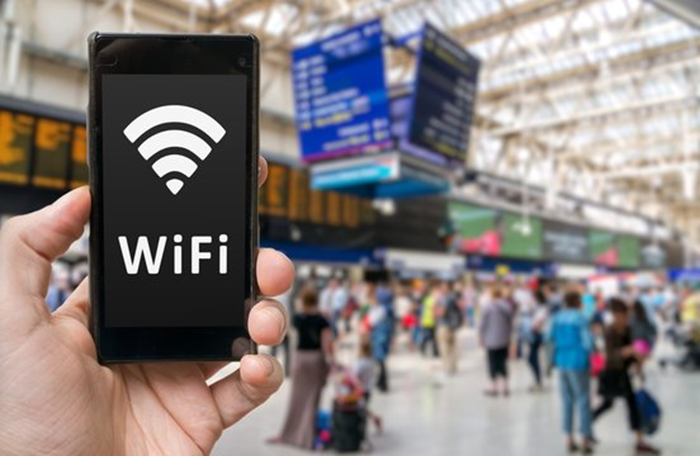Public WiFi is very rare in Germany. In tourist areas, it can be found in some cafes and shopping centers. But most often it is not open, and to connect you need to ask the waiter for the password.
In residential areas and non-tourist German cities, it is very difficult to find free WiFi. As I already wrote, I live in the very center of the city, and WiFi is only available in Starbucks. You do not need to enter a password to connect to it, but its speed leaves much to be desired. You can also use WiFi in the library, but only for 45 minutes a day, and only with a library card (to get one, you need to register your residence in this city).
There is no WiFi in the metro, but the mobile network is good. It is just that on the streets, in parks, squares and at train stations there is either no Internet at all, or it is paid. Many German airports do not have free Internet. If there is, you need to enter your E-Mail to connect to it, but its authenticity is not checked in any way.
In German universities, as a rule, only students can use the Internet. To connect to WiFi, they are given individual logins and passwords. With their help, you can log in to the network for free from an unlimited number of devices and use it without limits. The Internet speed at universities is usually very good. But I would not advise downloading illegal content there, since it is illegal in Germany, and it will be very easy to identify a student who has used torrents.
There is a single WiFi network Eduroam in the European Union. It allows students to use free Internet on the territory of all universities in Europe.
And for those who have not experienced the joys of student life in Europe, I would advise relying exclusively on Starbucks. There is always Internet there, although its speed varies in different cafes. But the coffee here is expensive – from 3.55 euros, and much less tasty than in real Italian cafes, of which there are many in Germany.

